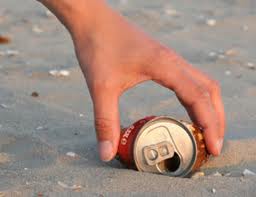Government Grants
Business Grants
Home Owner Programs
Federal Programs
About Us
NT-21-06: Mortality Risk for Whale and Basking Sharks During Energy and Mineral Operations
BOEM-authorized projects have been shown to cause mortality to large-bodied elasmobranchs that feed at a low trophic level.
While much work has been accomplished on commercially valuable species habitat use and relationship to oil and gas infrastructure, specific data gaps remain as to the relationship
between non-commercially harvested species whose populations continue to decline.
Information on the behavioral ecology of these world’s largest fishes can inform an understanding as to continued risk posed.
The purpose of this study is to understand how ecological and behavioral drivers impact risk of mortality to whale and basking sharks; an ongoing and active issue in the offshore energy industry.
The study will collect new, and synthesize existing, data on spatial and behavioral ecology of these species in the vicinity of both renewable and non-renewable energy operations to determine risk in relation to habitat use.
It will leverage existing data sets collected by government, academia and nongovernmental organization studies.
Additional telemetry data will improve fine-scale behavior and interaction risk.
Animal-borne sensors which sample at rapid intervals, typically sub-second, collect information on pitch, roll, heading and depth as well as other oceanographic variables can be utilized to visualize an animal's behavior.
These methods are widely recognized for understanding behavioral ecology and have been used to understand vessel strike risk on similar species, such as large whales.
Methods are additionally employed at several BOEM studies investigating fine-scale habitat use.
While much work has been accomplished on commercially valuable species habitat use and relationship to oil and gas infrastructure, specific data gaps remain as to the relationship
between non-commercially harvested species whose populations continue to decline.
Information on the behavioral ecology of these world’s largest fishes can inform an understanding as to continued risk posed.
The purpose of this study is to understand how ecological and behavioral drivers impact risk of mortality to whale and basking sharks; an ongoing and active issue in the offshore energy industry.
The study will collect new, and synthesize existing, data on spatial and behavioral ecology of these species in the vicinity of both renewable and non-renewable energy operations to determine risk in relation to habitat use.
It will leverage existing data sets collected by government, academia and nongovernmental organization studies.
Additional telemetry data will improve fine-scale behavior and interaction risk.
Animal-borne sensors which sample at rapid intervals, typically sub-second, collect information on pitch, roll, heading and depth as well as other oceanographic variables can be utilized to visualize an animal's behavior.
These methods are widely recognized for understanding behavioral ecology and have been used to understand vessel strike risk on similar species, such as large whales.
Methods are additionally employed at several BOEM studies investigating fine-scale habitat use.
Related Programs
Minerals Management Service (MMS) Environmental Studies Program (ESP)
Department of the Interior
Agency: Department of the Interior
Office: Bureau of Ocean Energy Management
Estimated Funding: $400,000
Office: Bureau of Ocean Energy Management
Estimated Funding: $400,000
Who's Eligible
Relevant Nonprofit Program Categories
Obtain Full Opportunity Text:
<p class="Normal" style="font-family:Times,serif;font-size:12pt;font-weight:normal;">See Related Documents</p>
Additional Information of Eligibility:
This project is intended to be a single source Cooperative Agreement with the Georgia Aquarium, a member of the Piedmont-South Atlantic Coast Cooperative Ecological Study Unit (https://www.cesu.psu.edu).
However, cooperative research (establishment of teams) is encouraged.
The applicant may include subcontracts to non-profit organizations, private institutions of higher education, private companies or public and state controlled institutions of higher education within their proposal.
Contributions of matching funds towards these efforts, either as cash or in-kind contributions (such as salary, equipment, etc., or a combination of both) is strongly encouraged.
Match cannot include value associated with collection costs for data/samples previously collected.
Match value for instrumentation and other equipment should be adjusted to the period of use within the project relative to the full life cycle for the item.
Further information can be located at 2 CFR 200.306.
Federal entities as partners are allowed, however the tasks performed by the Federal partner and the associated budget must be presented separately by the Federal partner.
Other non-federal organizations may be partners and their tasks and budgets should be included in the non-profit’s proposal.
Full Opportunity Web Address:
<p class="Normal" style="font-family:Times,serif;font-size:12pt;font-weight:normal;">See Related Documents</p>
Contact:
Agency Email Description:
Christy.Tardiff@bsee.gov
Agency Email:
Date Posted:
2021-04-22
Application Due Date:
Archive Date:
2021-06-24
Social Entrepreneurship
Spotlight
This Social Innovation Helps Prevent Bed Sores in Wheelchair Users

Co-founders William Mann and David Mravyan devised the Sensimat during a mandatory project for their MBA at the Richard Ivey School of Business in Canada. Sensimat is a device that helps manage and assess pressure among wheelchair users.

